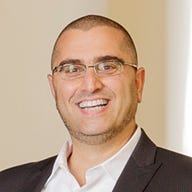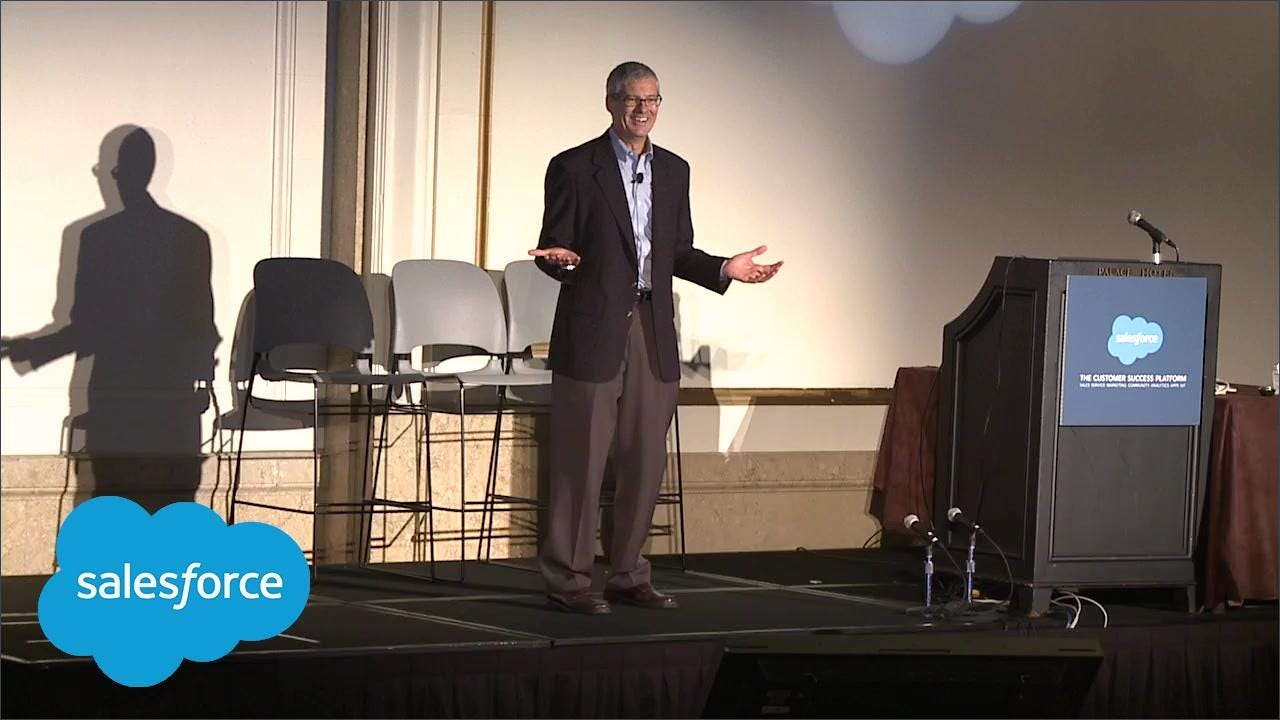Salesforce: The crisis as a turning point

Michael Maoz is the senior vice president of Innovation Strategy at Salesforce. He's one of the world's foremost CRM, Customer Experience (CX), and Customer Engagement Management (CEM) experts. Maoz was one of the creators of the CRM space and a member of the first global CRM software company. He joined Salesforce from Gartner, Inc., where he was a founder of the CRM practice and held positions as research vice president, distinguished analyst, and Gartner fellow.
Michael is also a board member at Rutgers Center for Innovation Education. Maoz regularly writes about business, leadership, and innovation industry tends. Today, Maoz is actively collaborating with CEOs and senior executives of the biggest and fastest-growing companies around the globe, guiding and learning from digital business transformation trailblazers. I asked Maoz to share his thoughts on the crisis as a turning point, and the importance of core values and guiding principles of business trailblazers.

Michael Maoz, Senior Vice President of Innovation Strategy at Salesforce.
The pandemic that is currently gripping the world lives up to the root of the word:
Crisis -- to decide, to judge. COVID-19 has forced everyone, every business and institution, to decide who and what they are, and how to act. When the current tragic predicament is behind us is when the assessment will be made on the judgements that we make now.
A well-defined company, educational institution or government will have the structure in place to respond quickly, and the first step in response is simply to show that you are there and that you care. It is not an economic consideration, though it will have economic ramifications. In the first moments of crisis it is the communication that 'we are here for you, we care for you, we feel compassion for you.
This is possible when the organization has already established healthy relationships with customers and employees. This is visible in dozens of places already, where the careful, sedulous heuristic of listening allows the organization at this moment of crisis to rally quickly and both create a narrative of caring and implement a specific plan of action.
With no offense to the legacy of President John F Kennedy or the dozens of others who mistranslated the Chinese word crisis as "danger and opportunity," the present moment of crisis is both a time of danger and a turning point. This crisis needs to be seen not as an 'opportunity' to leverage some future advantage, but as a turning point to reinvent the purpose and goals of every business and organization to be more customer-focused and empathetic.
There is beauty even in this time of peril. There are healthcare workers literally risking their lives in what would seem to be a non-intuitive extreme altruism. What more persuasive example of how all of us can be more 'pro-social' than this humbling example of inclusive caring? Hundreds of companies of all kinds, and thousands of NGOs and volunteer organizations have stepped up to fill in the many white spaces where government cannot act quickly enough.
My own company, Salesforce, made an immediate pivot to marshal resources on all levels to help with solutions.
We are one cog in a massive wheel that is in operation as a collective consciousness, not held together in any official way, but unified out of shared ideals and beliefs that allow all of us to act for a common good as though we were one.
Do not worry if you are not the organization with the best or healthiest relationships with customers and employees. For you, this may be the exact impetus to begin that turning point for which there was insufficient support in the past. The future will not judge you on yesterday. The future will only judge you on how you act today.
In 2019, Michael Maoz shared 10 customer experience lessons with Ray Wang, CEO and founder of Constellation Research, and I on our weekly video podcast DrisrupTV. I highly encourage you to watch our video conversation.
This article was co-authored by Michael Maoz, senior vice president of Innovation Strategy at Salesforce.